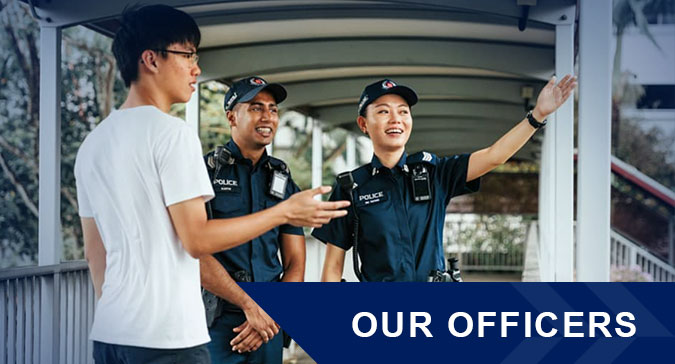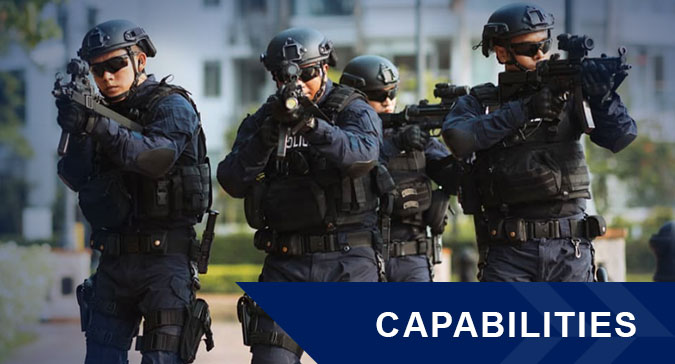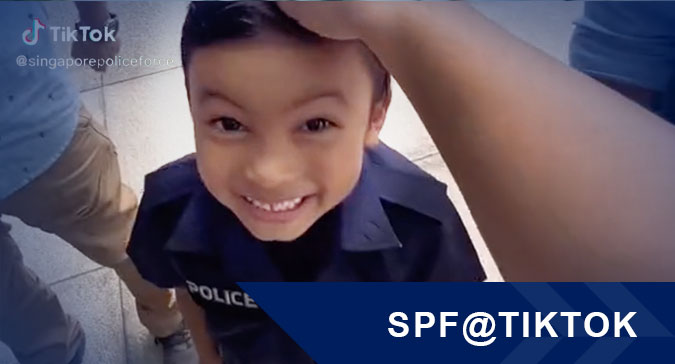From her early inspiration rooted in her family legacy to navigating complex security challenges, AC Malathi shares her insights on leadership and ensuring safety and security at one of the world’s busiest airports!
By: Al Cheng
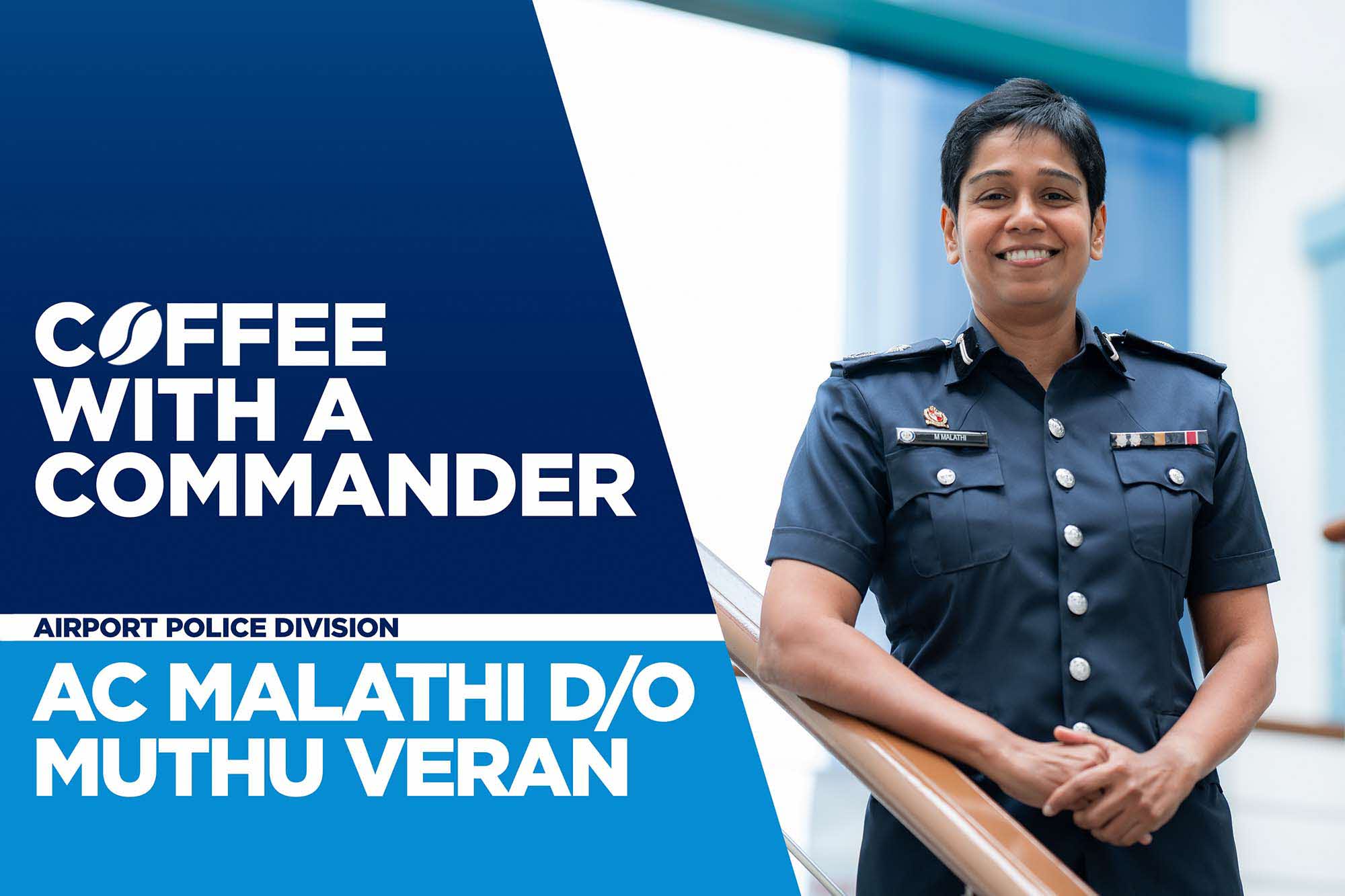
Having served in the Singapore Police Force (SPF) for 25 years, Assistant Commissioner of Police (AC) Malathi D/O Muthu Veran has accumulated a wealth of experience. Police Life sat down with AC Malathi to learn about how her diverse postings have shaped not just her professional ethos, but also her approach to leading her team as Commander of the Airport Police Division (APD).
What inspired you to join the SPF?
I was inspired by my parents, who were both Police officers. Back then, they could bring their kids to the Old Police Academy after work, so I pretty much grew up at the Academy. I was also drawn to policing as it’s a noble profession that helps people and contributes to keeping Singapore safe – it’s something that I always wanted to do as my career.
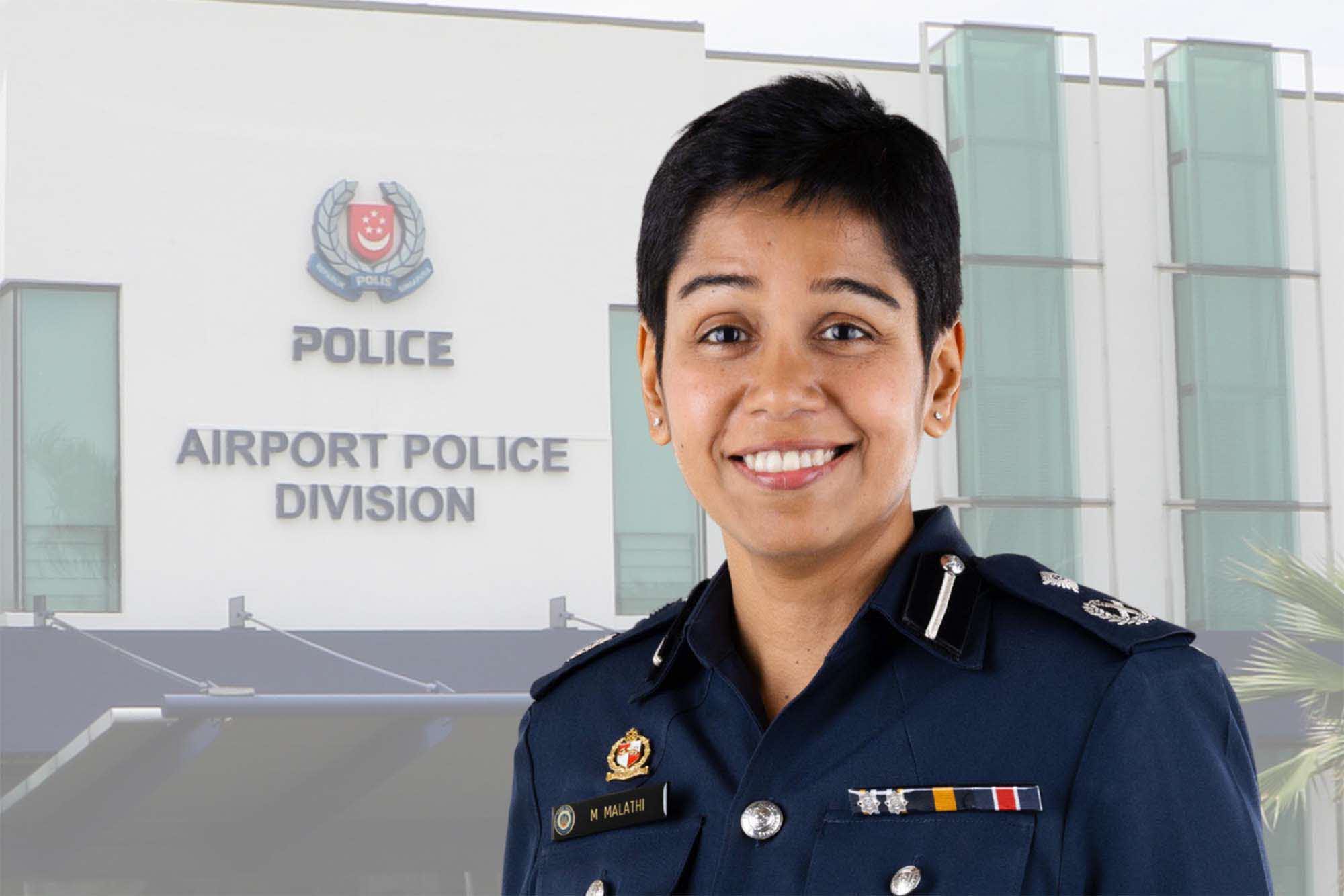
Tell us about your posting history.
I joined the SPF in 1999. Prior to my posting as Commander APD in February 2024, I was posted to the Operations Department in 2022 as Deputy Director Operations (Security & Readiness). In 2019, I served as the Deputy Commander of the Public Transport Security Command.
The APD is responsible for the safety and security of Singapore Changi Airport, Seletar Airport, Changi Airfreight Centre and Airport Logistics Park Singapore. In addition, we’re also the Appropriate Authority for civil aviation security in Singapore, fulfilling its international obligation to the International Civil Aviation Organisation framework.
How did your past experiences prepare you for your current role as Commander?
My previous operational postings have put me in good stead for incident management, event planning and execution, while my staff postings prepared me for strategic and future planning. This is particularly relevant for APD as we plan for the opening of Terminal 5, which will be as extensive as Terminal 1 to 4 combined, and bring about an increase in air travel.
It’s not possible to operate the way we do today. Hence, we are reviewing our policing strategy and considering how we can integrate technology to enhance our effectiveness.
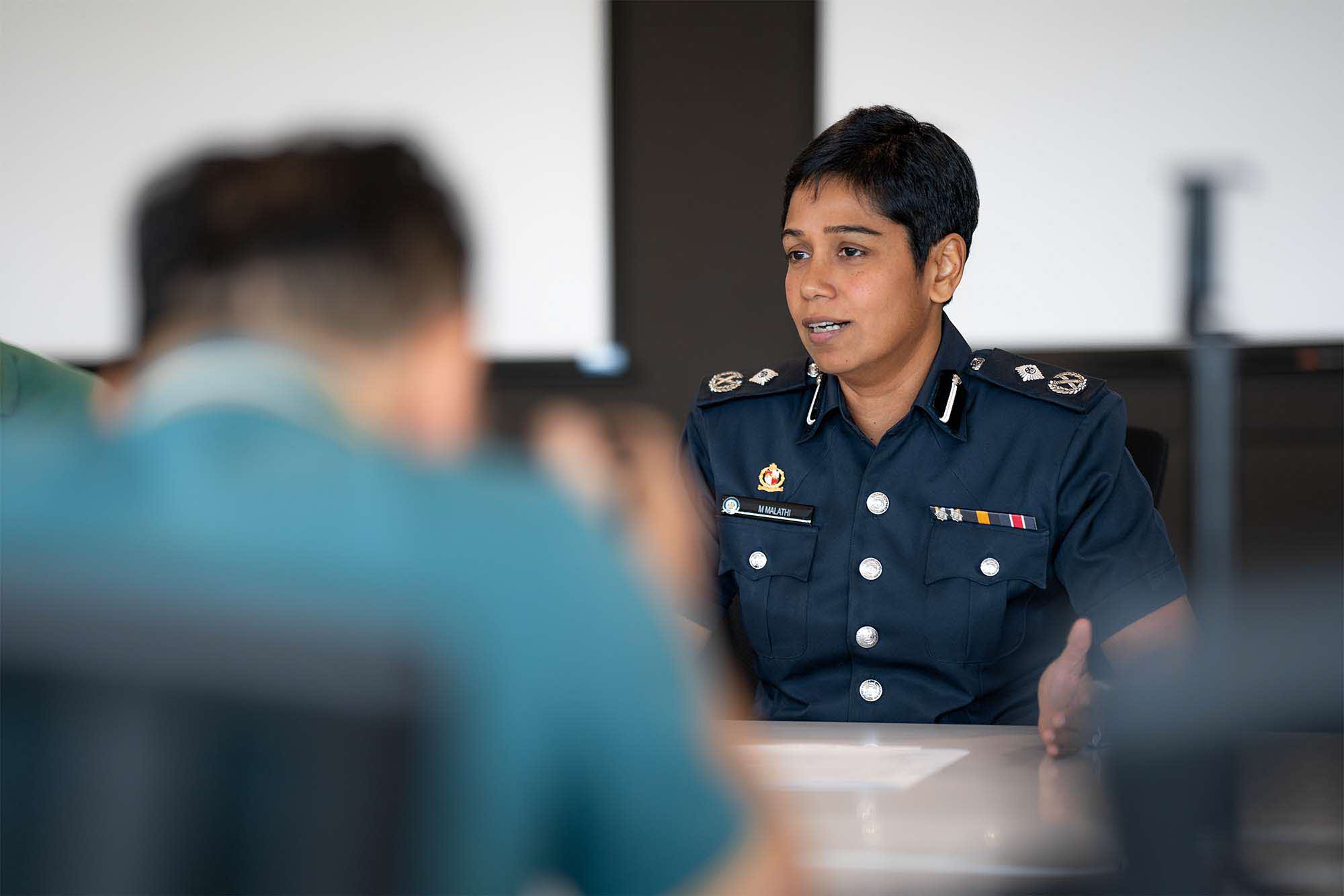
What are the challenges faced by the APD?
One challenge is balancing security outcomes with facilitating security implementation. We work with many stakeholders such as the Changi Airport Group, Civil Aviation Authority of Singapore, airlines operating at Changi Airport and Seletar Airport, and other entities including Dnata, Singapore Airport Terminal Services and Certis Cisco. A key aspect of our role is explaining security outcomes to these stakeholders so that they understand our position and implement the necessary security measures.
Another challenge is that most of the crimes in our jurisdiction are committed by foreigners and often syndicates, for example, theft onboard aircrafts. Criminals may also commit crime in the transit area. This means we have to work very quickly when a crime is reported, to arrest suspects before they board a flight and leave Singapore.
You were the first female representative selected as Head INTERPOL Liaison Officer in Thailand. Share your experience with us.
In 2011, I had the privilege to work in Bangkok for two years, during which I led a team of international Police officers. We were in charge of assisting ASEAN countries in providing training for their law enforcement agencies on INTERPOL’s tool and systems, as well as assisting them in some of their major operations.
One of the challenges I faced during this posting was navigating cultural differences. I learnt to deal with this, communicate differently and manage varying expectations. The key was pulling together a team of officers from diverse backgrounds, cultures, countries and priorities to work towards a common goal.
What’s your most memorable experience during your policing journey?
During my posting at Tanglin Police Division as Head Operations in 2008, I was in charge of the operations for key events including the Shangri-La Dialogue, APEC Economic Leaders’ Meeting and Singapore Grand Prix.
Personally, the F1 event in 2008 stands out, as it was the first night race in Singapore. There was no existing security plan for this event and we had to build one from scratch. We worked closely with the Singapore Grand Prix to formulate and implement the security plan to ensure safe and smooth operations. This was the backbone of all F1 security operations to come and remains relevant, with of course tweaks due to operational terrain and constraints, till today.
I vividly recall a situation in front of the Bay Grandstand, where the crowd came to a standstill during dispersal and we had to make the call to open the emergency gates so that the crowd could flow out via an alternative route, to prevent further build-up.
What are the key qualities that make for an effective leader? How would you describe your leadership style?
An effective leader needs to have vision – a vision to take the team farther and the ability to articulate that vision to them. Having emotional intelligence is equally important; understanding yourself, your team and their emotions fosters good relationship-building, which is the foundation for a strong team.
Building strong relationships are important as no leader can do the job alone – success depends on teamwork. This involves building shared experiences outside work and practicing clear communication, explaining the rationale behind the decisions to ensure the team understand the reasons for them.
A leader must also be accountable and responsible for their actions and decisions. Hence, leading by example and setting standards for the team to follow is certainly a challenge as one needs to set the standard for themself.
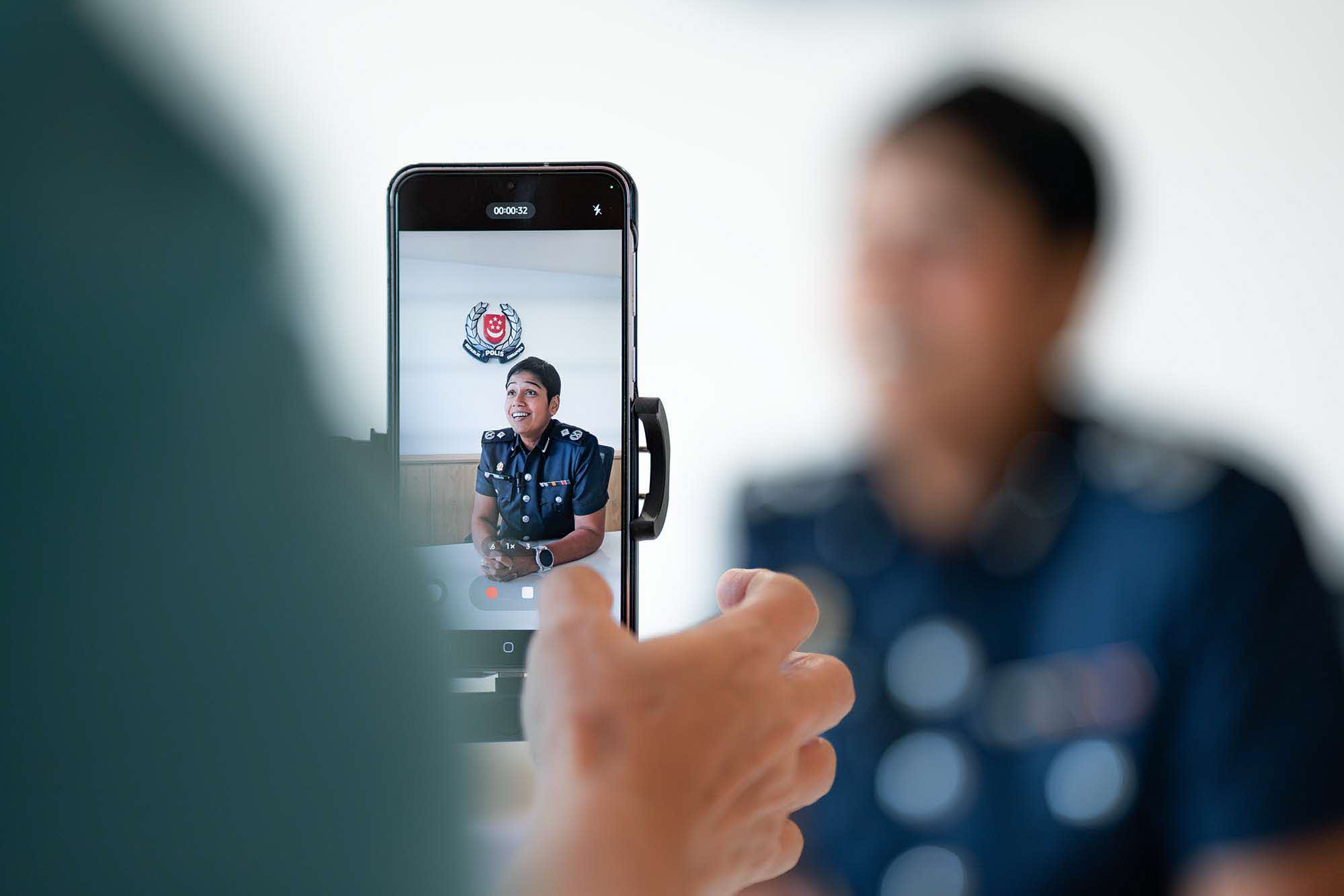
What advice do you have for officers who aspire to lead?
One has to lead themself first. It’s about being real and being yourself; it’s alright to share your vulnerabilities or weaknesses as a leader – no one is perfect. Your team also needs to know that you are on a journey, and as leader it’s your role to inspire them alongside you on this journey.
How do you balance your professional responsibilities with your personal life, and how do you recharge?
I’m thankful for my parents as they offer me support in many different ways. Balancing work and life are something that we all have to prioritise – it’s really about carving out time for yourself.
I like going for runs in the early morning because that’s when nobody disturbs me, and it helps me to clear my mind. I also like meeting up with friends and loved ones for a meal. I enjoy food, so I try to find new places to try.
Coffee with a Commander Series
Hear from the Commanders in the Force to gain insights into their postings, motivations, challenges and leadership journey. Hear from Commander of Bedok Police Division, AC Justin Wong and Commander of Woodlands Police Division, AC Ang Eng Seng!


